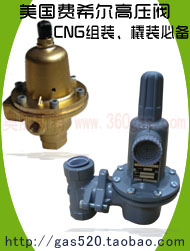位置:首页 > 燃气资讯 > DNV GL to Class LN
DNV GL to Class LNG Powered Helgoland Ferry
浏览次数 740 , 日期 2013-11-27 , 燃气设备 加入收藏
A new Fassmer built Helgoland ferry for German shipping company AG EMS will be constructed under the supervision of classification society DNV GL. The nearly 80m long vessel is said to be the first German flagged newbuilding to be equipped with a propulsion system designed to operate primarily with liquefied natural gas (LNG) as a fuel.
Using LNG as fuel allows the vessel to make significant cuts to its emissions to the air, bringing it into compliance with incoming regulations to protect the environment. Virtually eliminating particulate matter and significantly cutting sulphur oxide (SOx) and nitrogen oxides (NOx) emissions, the switch from conventional fuel also results in up to a 30% reduction of carbon dioxide, making the vessel especially suited to environmentally sensitive coastal areas. The new ship also meets the “Blue Angel” standards for Eco-friendly ship design.
“At DNV GL we have promoted the use of LNG as a ship fuel for many years and it is very gratifying to see that there is a growing realisation of the potential of this technology to help the shipping industry demonstrate its commitment to acting as a responsible steward of the environment,” said Henning Pewe, DNV GL LNG expert. “We have been working for some time on the development of these technologies, especially in the area of bunkering, to ensure that as more owners look to take advantage of these innovations they have the support they need to be confident in the safety of their investment.”
Both the primary and auxiliary engines are dual-fuel designs, but the vessel will operate primarily on LNG, while retaining the ability to switch to conventional fuels if so required. The hull has been specially designed to enable a cruising speed of some 20 knots, with a dynamic stabilization system in place to ensure passenger comfort.
Delivery is scheduled for April 2015 the ship will have a passenger capacity of 1000, while also boasting an onboard crane and room for up to ten 10ft reefer containers. The new ship will operate year round between the ports of Cuxhaven and Helgoland.
Using LNG as fuel allows the vessel to make significant cuts to its emissions to the air, bringing it into compliance with incoming regulations to protect the environment. Virtually eliminating particulate matter and significantly cutting sulphur oxide (SOx) and nitrogen oxides (NOx) emissions, the switch from conventional fuel also results in up to a 30% reduction of carbon dioxide, making the vessel especially suited to environmentally sensitive coastal areas. The new ship also meets the “Blue Angel” standards for Eco-friendly ship design.
“At DNV GL we have promoted the use of LNG as a ship fuel for many years and it is very gratifying to see that there is a growing realisation of the potential of this technology to help the shipping industry demonstrate its commitment to acting as a responsible steward of the environment,” said Henning Pewe, DNV GL LNG expert. “We have been working for some time on the development of these technologies, especially in the area of bunkering, to ensure that as more owners look to take advantage of these innovations they have the support they need to be confident in the safety of their investment.”
Both the primary and auxiliary engines are dual-fuel designs, but the vessel will operate primarily on LNG, while retaining the ability to switch to conventional fuels if so required. The hull has been specially designed to enable a cruising speed of some 20 knots, with a dynamic stabilization system in place to ensure passenger comfort.
Delivery is scheduled for April 2015 the ship will have a passenger capacity of 1000, while also boasting an onboard crane and room for up to ten 10ft reefer containers. The new ship will operate year round between the ports of Cuxhaven and Helgoland.








